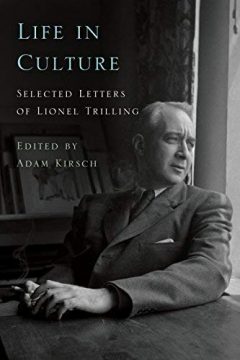Bruce Whiteman at The Hudson Review:
 Trilling rather disliked the label “literary critic” and was pleased when Étienne Gilson suggested, in 1955, that he was not one. (Just what Gilson proposed him to be is not made clear.) All the same, twenty years after the Gilson exchange, Trilling would write to someone, who had sent him some offprints, to aver that he should “best refer to me as a critic of literature.” He did not much care for the New Criticism of Allen Tate, William Empson, and Cleanth Brooks, calling it snide and restrictive. Leon Edel, more a literary historian than a critic to be sure, he thought dull-witted (“a very stupid man”). One would not expect the life of a literary critic to be full of high adventure and derring-do, and the composite portrait of a critic’s life as painted in Trilling’s letters appears a largely unruffled if not a completely serene one. He married young and stay married to the same woman for his entire life. If there were any occasions of extramarital desire, much less action, they are not even intimated here. There is only a single rather explicit letter, to his wife, Diana, in which he talks about sex, and he never once swears and rarely uses slang. (When he writes in a letter to Norman Mailer that sex should be a subject for novelists for “ten, maybe twelve years; then everybody shut up,” it is a bit of a shock.)
Trilling rather disliked the label “literary critic” and was pleased when Étienne Gilson suggested, in 1955, that he was not one. (Just what Gilson proposed him to be is not made clear.) All the same, twenty years after the Gilson exchange, Trilling would write to someone, who had sent him some offprints, to aver that he should “best refer to me as a critic of literature.” He did not much care for the New Criticism of Allen Tate, William Empson, and Cleanth Brooks, calling it snide and restrictive. Leon Edel, more a literary historian than a critic to be sure, he thought dull-witted (“a very stupid man”). One would not expect the life of a literary critic to be full of high adventure and derring-do, and the composite portrait of a critic’s life as painted in Trilling’s letters appears a largely unruffled if not a completely serene one. He married young and stay married to the same woman for his entire life. If there were any occasions of extramarital desire, much less action, they are not even intimated here. There is only a single rather explicit letter, to his wife, Diana, in which he talks about sex, and he never once swears and rarely uses slang. (When he writes in a letter to Norman Mailer that sex should be a subject for novelists for “ten, maybe twelve years; then everybody shut up,” it is a bit of a shock.)
more here.
